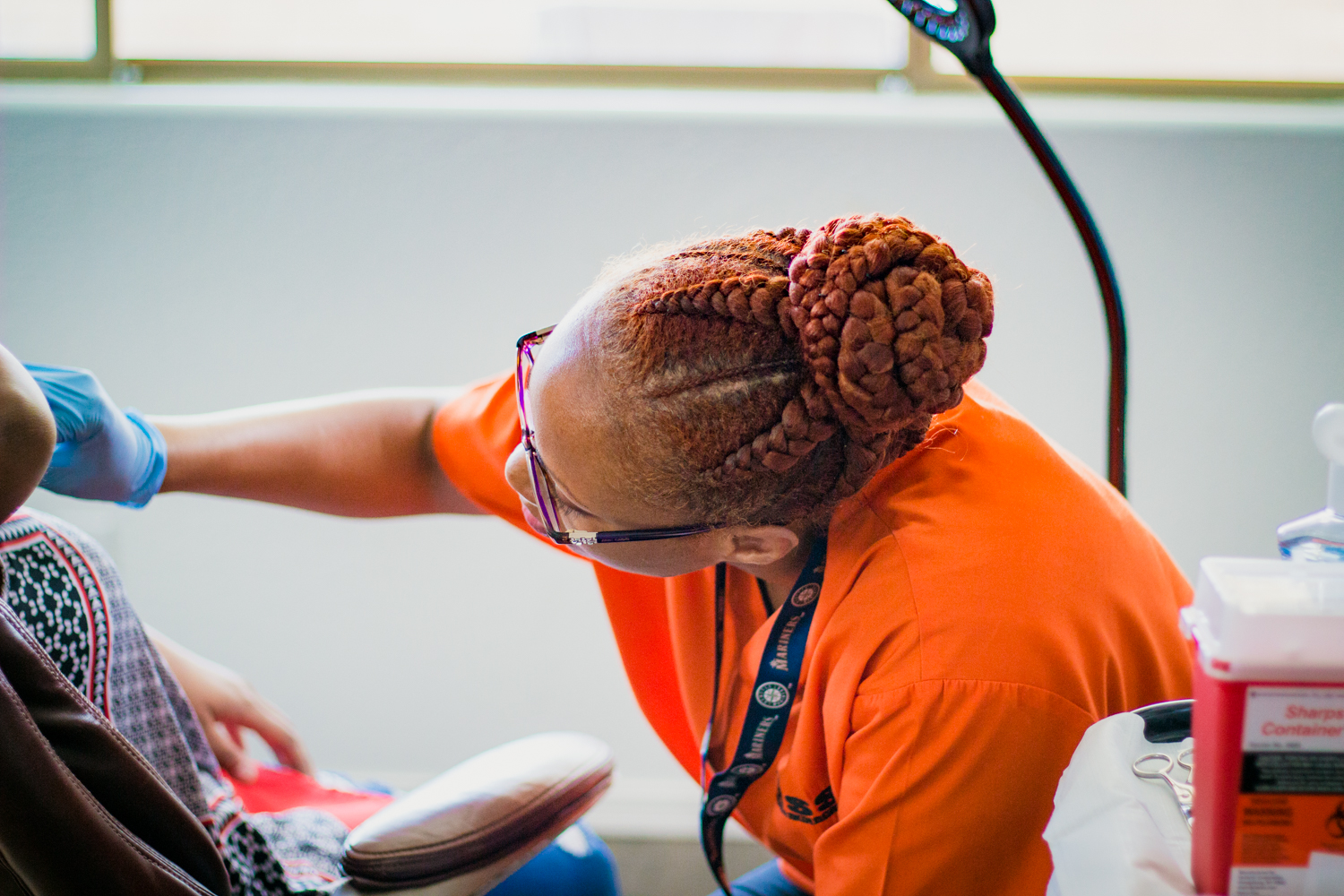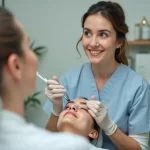So, you’re obviously wondering if you should schedule a full body skin cancer screening. This type of examination is one of the most effective ways to detect skin cancer early. Diagnosing skin cancer in it’s early stages can provide patients with more treatment options and in some cases can help them avoid surgery. If surgery is required, early detection helps make sure scarring isn’t as noticeable. But, the most important benefit of a full body skin exam is that it can save your life.
The disadvantages of Self Skin Cancer Screenings.
We all know that getting into the dermatologist can be a drag. But, that’s not a good enough reason to avoid a checkup. Although the patient experience has lost it’s touch over the years, it doesn’t mean you’re equipped and able to effectively evaluate your own skin. Even if you know the ABCDE self exam guidelines.
The main disadvantage of DIY methods, is you still won’t be sure. Thinking about the unknown can really hinder your quality of life. Moreover, areas that are often overlooked by people when they’re doing monthly self skin exams are behind the ears, the scalp, the bottoms of feet, between the toes and the back. If you’re not sure where to look, then you can miss a warning sign altogether.
Why Get A Full Body Skin Cancer Exam?
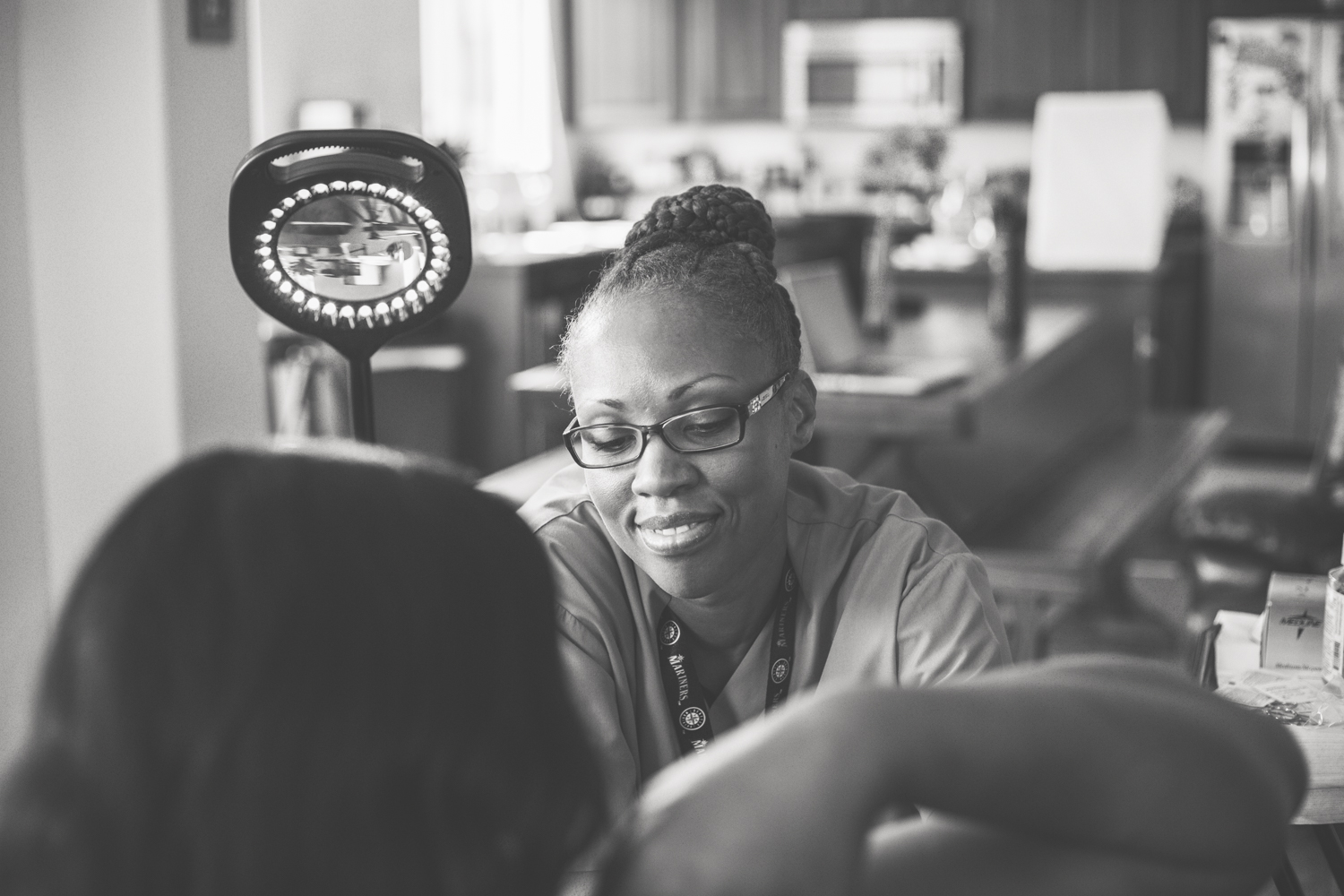 The difference between a skin cancer screening and a full body skin exam is that in the former, a provider looks your body over for skin cancer but does not diagnose or treat any lesions. A primary care provider will let you know if a lesion needs further evaluation and can recommend that you schedule an appointment with a dermatology provider. There are a lot of steps involved in this process. That’s why we created a number of services that allow you to address concerns immediately.
The difference between a skin cancer screening and a full body skin exam is that in the former, a provider looks your body over for skin cancer but does not diagnose or treat any lesions. A primary care provider will let you know if a lesion needs further evaluation and can recommend that you schedule an appointment with a dermatology provider. There are a lot of steps involved in this process. That’s why we created a number of services that allow you to address concerns immediately.
A full/total body skin exam a provider examines your entire body and will identify the lesions and skin conditions on your body (e.g., a seborrheic keratosis, xerosis or dry skin, a concerning mole, actinic keratosis, etc.), will biopsy suspicious lesions, discuss options, track and document moles for changes, and treat lesions. If you’re going to take the time to get one mole checked, you might as well evaluate everything and schedule a full body skin cancer screening.
Why People Schedule Skin Cancer Screenings.
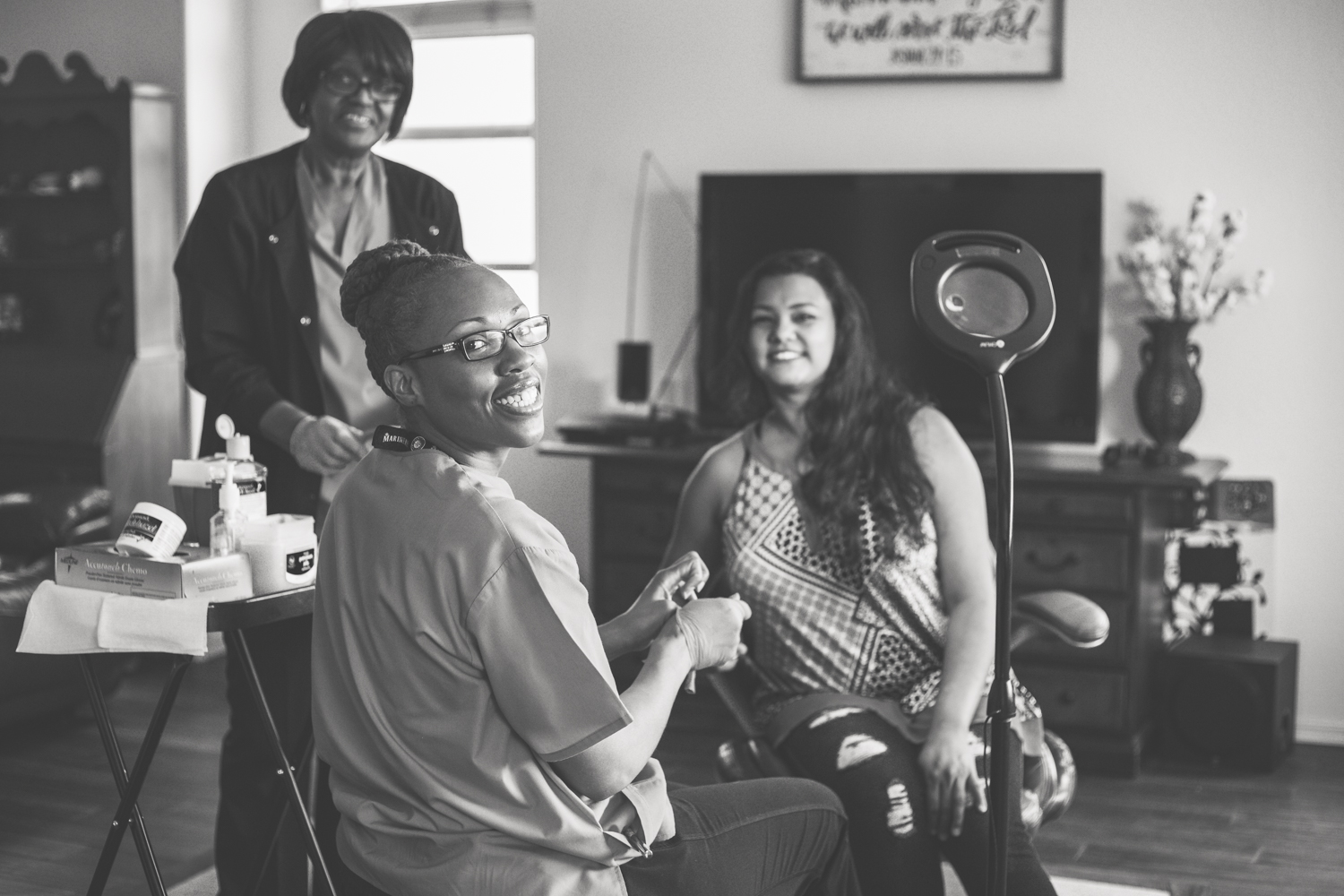 Normally people get a skin cancer screening because they want a lesion checked to rule out skin cancer or their employer is offering free skin cancer screenings during a health fair. It tends to occur when the service is free or worry sets in.
Normally people get a skin cancer screening because they want a lesion checked to rule out skin cancer or their employer is offering free skin cancer screenings during a health fair. It tends to occur when the service is free or worry sets in.
A majority of the population doesn’t know that they should schedule a full body skin cancer screening every year – not just when they feel like it. Taking extra steps to prevent and diagnose can be the difference between life and death. Other people that schedule skin exams tend to have:
- A personal or family history of skin cancer or higher risk of developing it.
- Had sun damaged skin in the past.
- Had prior pre-cancer treatments.
- Are routinely exposed to the sun due to work or hobbies.
- A history of using indoor sun tanning booths.
- Had phototherapy or radiation treatments.
- Been taking medications that suppress the immune system.
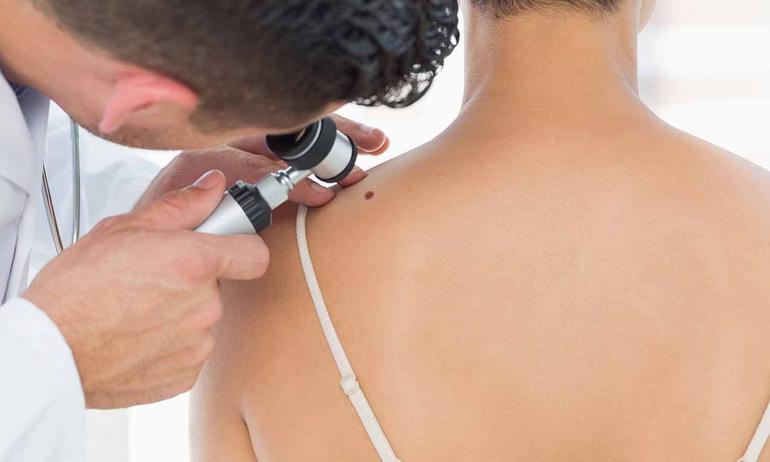 The type of moles that concern people the most are raised moles and moles on the back. There is a misnomer that all melanomas are raised which is inaccurate. Melanomas can be flat or raised and vary in color. No two melanomas look the same.
The type of moles that concern people the most are raised moles and moles on the back. There is a misnomer that all melanomas are raised which is inaccurate. Melanomas can be flat or raised and vary in color. No two melanomas look the same.
The moles on the back have a tendency to be larger in size and are not easy to see. Often times patients get moles on their back checked because a spouse, massage therapist, esthetician, or another provider recommends getting them evaluated.
Although it’s good to receive screenings when concerned, it’s also important to receive routine full body examinations by a regular derm provider that knows your skin and can help you monitor lesions for changes. It’s important to detect atypical moles and skin cancers sooner rather than later.
Uncommon Causes of Skin Cancer That Should Be Monitored.
A skin exam is a painless way to get your skin, nails and mucous membranes checked for any abnormal or concerning features. All that is used are the provider’s senses: sight to examine the lesions, touch to feel for a difference in texture from normal skin, and hearing to listen to patients when they explain why they are concerned with their lesions.
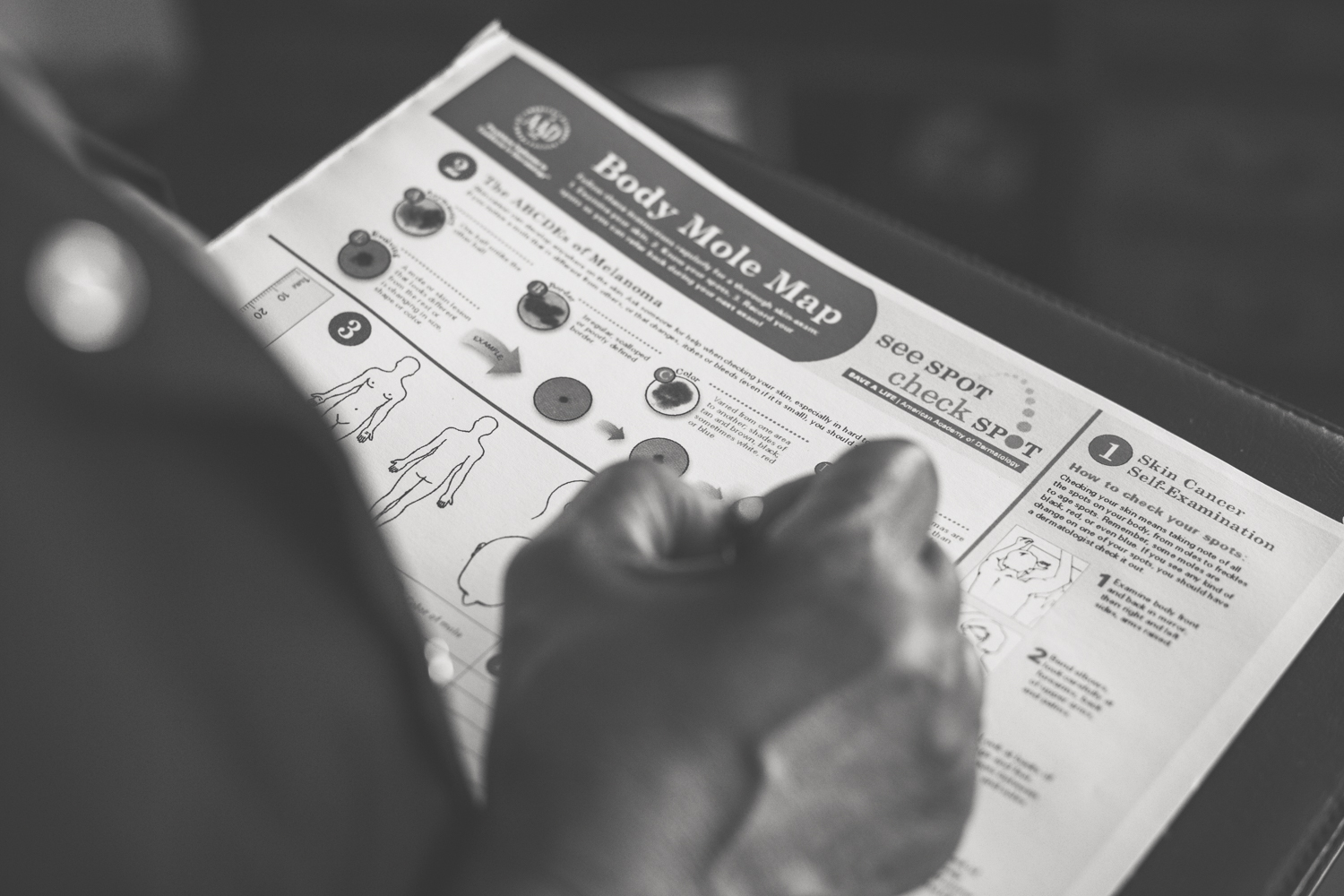
Skin cancer develops from the accumulation of sun damage over a lifetime. Most of the damage has been done by early adulthood. So even if your skin has been routinely protected from the sun for the past 10 years, the damage doesn’t go away if the area was previously exposed to the sun or sunburned. But, there are also some other causes that should be considered.
Genetic mutations, immunosuppression due to illness or medication (e.g., lupus, rheumatoid arthritis, anti-rejection meds for organ transplants), human papillomavirus (HPV) that progresses to squamous cell carcinoma (SCC) (e.g., SCC of the anogenital area, of the lip), environmental exposure to carcinogenic agents (e.g., radiation treatment, living in close proximity to a plant or factory emitting toxins, routinely working or handling toxic chemicals, etc). These are just a few.
Why Limited Skin Cancer Screenings Can Be Risky
Not all screeners have had proper training in dermatology so they can mistake a concerning lesion for something benign or completely miss a skin cancer because they didn’t do a thorough exam. I have personally seen both of these scenarios in which one of the lesions was a melanoma.
Details about the Progression of Untreated Skin Cancer
Even though there is a less than 10% chance of dying from an untreated non-melanoma skin cancer (NMSC), (i.e., basal cell carcinoma (BCC) or squamous cell carcinoma (SCC)) it is highly beneficial to treat them sooner rather than later. Cancer is a tumor where abnormal cells divide and reproduce rapidly. This causes the tumor to grow in size quickly. Untreated skin cancer will continue to grow in size which can distort and grow into other organs such as the eyes, nose, ears and mouth. Skin cancer are fragile so they bleed easily with the slightest trauma.
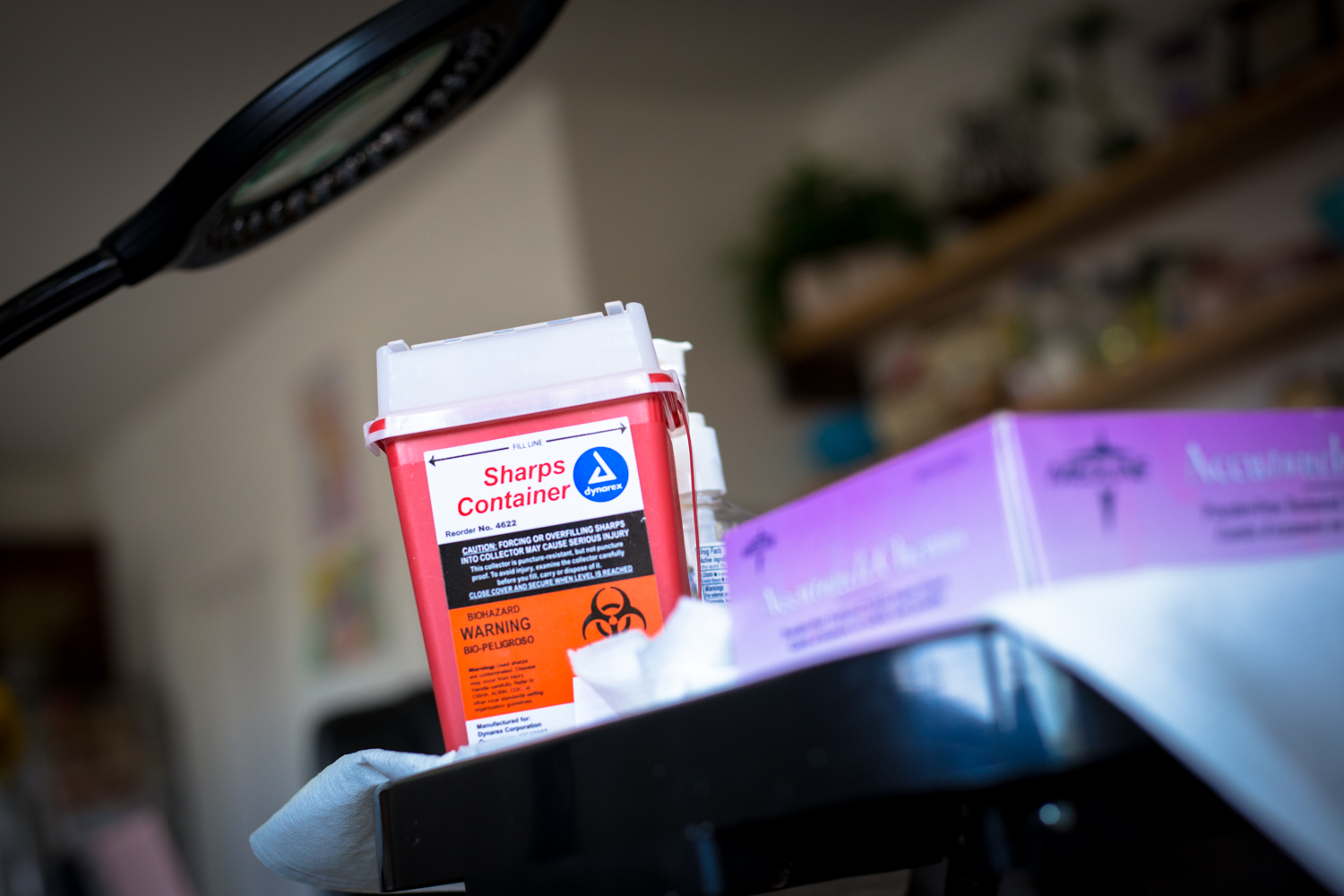 Stages: Melanoma is the deadliest type of skin cancer because it can spread to the lymph nodes to other organs if it’s not detected early. This is the main type of skin cancer that is staged from in situ (confined to one location with no signs of spreading) to stage 4. In situ has the best prognosis with over a 95% ten year survival rate and stage 4 having the worst prognosis with a less than 10% five year survival rate.
Stages: Melanoma is the deadliest type of skin cancer because it can spread to the lymph nodes to other organs if it’s not detected early. This is the main type of skin cancer that is staged from in situ (confined to one location with no signs of spreading) to stage 4. In situ has the best prognosis with over a 95% ten year survival rate and stage 4 having the worst prognosis with a less than 10% five year survival rate.
How long does someone have until it becomes serious? No one knows. There are different factors that impact prognosis such as the site of the melanoma (head, neck and trunk have a worse prognosis), age of the individual (worse prognosis the older you are), sex (men have a poorer prognosis), the features of the melanoma (e.g., thicker tumors have a worse prognosis), and if lymph nodes are involved which means the melanoma has spread.
What Our Full Body Skin Cancer Screening Entails
Our full body skin exam entails checking the skin, nails, mucous membranes, and external organs from head to toe for concerning lesions. We check your entire body because most melanomas develop in non sun-exposed areas of the body.
What to Expect During Our Mobile, Full Body Skin Cancer Screening
The benefits of a full body skin exam is the peace of mind of a dermatology trained provider examining your body for skin cancer. Your skin is the largest organ of your body so it would be almost impossible to do a thorough and complete exam in one to two minutes. Most people have benign pigmented lesions such as moles, freckles, liver or sun spots, seborrheic keratosis, dry scaly skin and sun damage which takes more time to examine their features to know if any concerning features are present. This can’t be done at a glance. Again with a melanoma, you want to diagnose it sooner rather than later. This can only be done if a provider takes their time and thoroughly examines the features of your lesions. I have diagnosed melanoma in four patients that their dermatologists missed.
So, Do You Think You Should Schedule a Full Body Skin Cancer Screening?
Our nurse practitioners are first trained as RNs – which means we’ve spent more time with patients than doctors have. We have been trained to take care of our patients holistically and pay close attention to subtle changes which can be an initial sign of something bad. This should give a person peace of mind that they are being examined and cared for by a provider with that type of training and mindset.
My Personal Experience of a Full Body Screening Paying Dividends
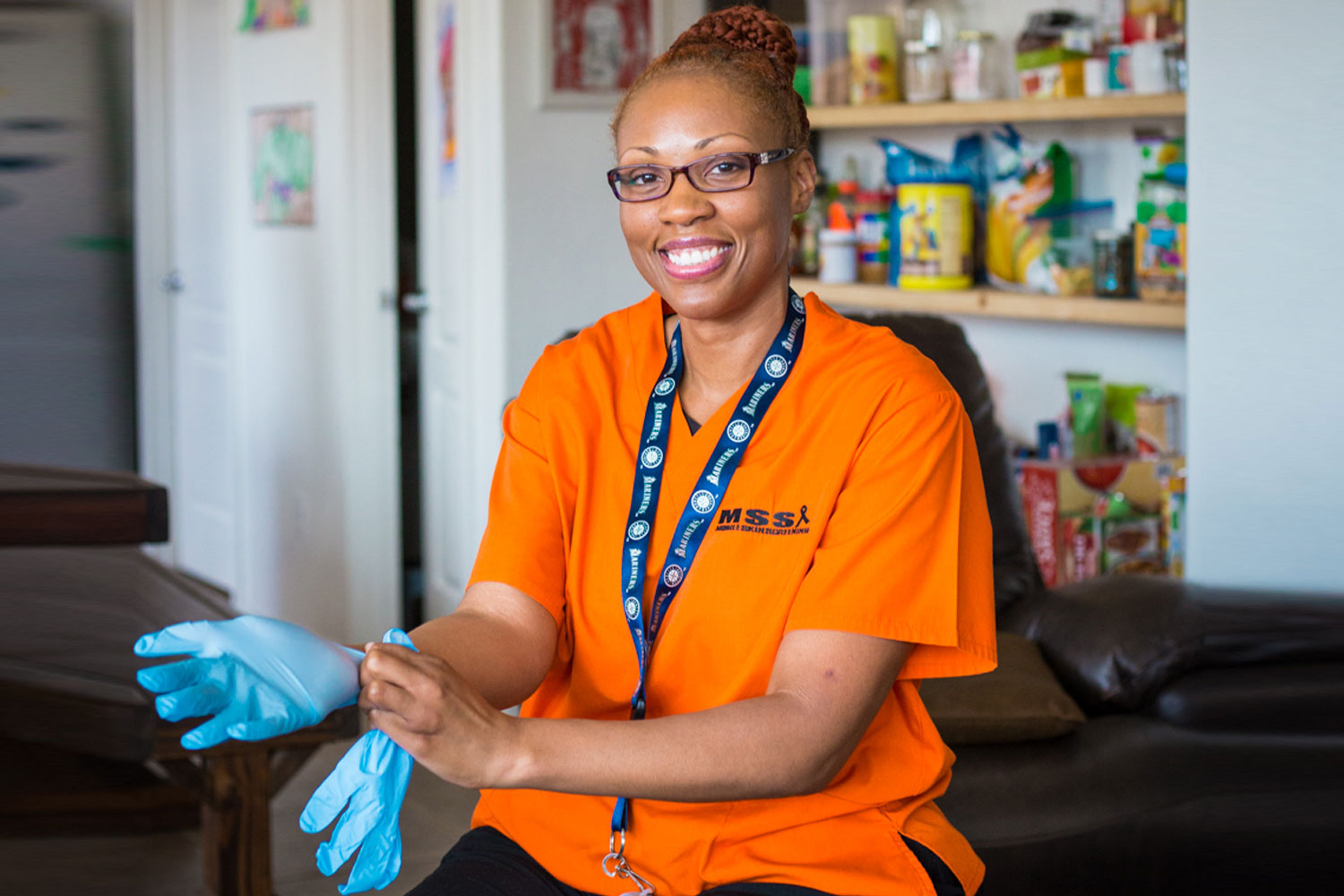 I did a skin cancer screening at a corporate health fair. There was this one employee that I performed a skin cancer screening. She had what appeared to be a small mole on the back of her knee that at a glance appeared normal; however, when I examined it closely it had some subtle features that were concerning. It was the only mole she had on her legs. I recommended that she get it examined by a dermatologist.
I did a skin cancer screening at a corporate health fair. There was this one employee that I performed a skin cancer screening. She had what appeared to be a small mole on the back of her knee that at a glance appeared normal; however, when I examined it closely it had some subtle features that were concerning. It was the only mole she had on her legs. I recommended that she get it examined by a dermatologist.
The following year, I worked at the same health fair. That employee came up to me and thanked me. She told me she went to her dermatologist and showed him her mole. Her dermatologist told her the mole was nothing to worry about. The employee insisted that he biopsy the mole. Her dermatologist was reluctant to do the biopsy, but because the employee insisted, her dermatologist biopsied the mole to appease her. The mole on the back of her leg was a melanoma.
If you’re interested in learning more about home skin cancer screening, feel free to email me at [email protected] or by calling (602) 783-4971.

